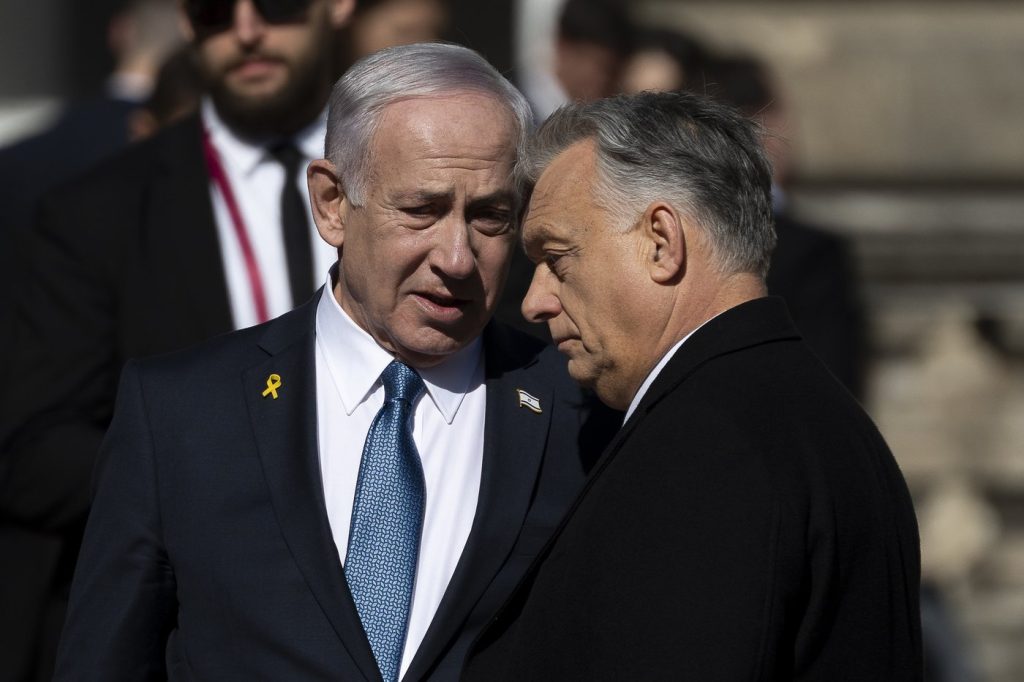BUDAPEST, Hungary — Israeli Prime Minister Benjamin Netanyahu arrived in Hungary's capital on early Thursday, receiving a red carpet welcome despite facing an arrest warrant from the International Criminal Court (ICC). This visit marks Netanyahu's second trip abroad since the warrant was issued against him in November.
The Hungarian government, led by populist Prime Minister Viktor Orbán—an ally of Netanyahu—announced the initiation of procedures to withdraw from the ICC during this high-profile visit. Orbán's chief of staff, Gergely Gulyás, stated that this move would comply with constitutional and international legal standards.
Welcomed with full military honors, Netanyahu stood alongside Orbán as a military band played, and soldiers participated in an elaborate procession in Budapest's Castle District. The two leaders were scheduled to hold talks later in the day, with Netanyahu planning to stay in Hungary for several days before departing on Sunday.
The ICC, based in The Hague, Netherlands, issued a warrant for Netanyahu and former Israeli Defense Minister Yoav Gallant, citing concerns that they utilized "starvation as a method of warfare" by restricting humanitarian aid to the Gaza Strip and intentionally targeted civilians in their military actions against Hamas. These allegations have been firmly denied by Israeli officials.
As a member of the ICC, Hungary is obligated to arrest suspects facing such warrants if they enter its territory; however, the court lacks enforcement power, relying on member states for compliance. Following the warrant's issuance, Orbán criticized the ICC, accusing it of political interference in an ongoing conflict and claiming that the court's actions undermined international law and heightened tensions.
Orbán's invitation to Netanyahu represents a bold defiance of the ICC's authority. Notably, Hungary became a member of the court in 2001 during Orbán's first term as Prime Minister. In response to Hungary's withdrawal announcement, Israeli Foreign Minister Gideon Saar expressed gratitude to Orbán, commending Hungary's decision and criticizing the ICC for allegedly undermining Israel's right to self-defense.
It is important to note that neither the United States nor Israel is a signatory to the ICC. Previous U.S. President Donald Trump also condemned the court's investigations into Israel's actions in Gaza, where thousands of Palestinians, including many children, have lost their lives due to ongoing conflict. In February, he announced sanctions against the ICC related to these probes.
The ICC has voiced criticism toward Hungary's intent to defy its warrant for Netanyahu. Its spokesperson, Fadi El Abdallah, articulated that it is not within the rights of ICC member states to unilaterally determine the legitimacy of the court's legal decisions.
Netanyahu's visit to Budapest symbolizes the close ties between Hungary and Israel, particularly as Orbán's government has positioned itself as a vocal defender of Israeli policies in Europe. The implications of Hungary's potential withdrawal from the ICC could resonate widely in international law and relations, especially concerning accountability for alleged war crimes.










